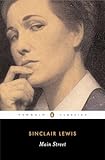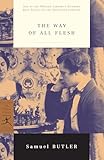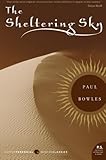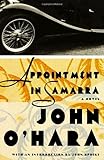
 As it happens, I read The Heart is a Lonely Hunter right after finishing Out Stealing Horses. I felt almost forced to read the latter novel (the locus of a great storm of positive feedback), but I left it feeling disappointed in myself and in literature for our respective failures to engage and be engaged. Fatuously, one feels one’s lack of enthusiasm for a lauded novel makes somebody a philistine, but one can’t, unfortunately, be certain that it’s the other guy. It’s kind of a tight spot. The Heart is a Lonely Hunter was a fortuitous follow-up, the perfect antidote to a mood like this. The two novels share enough elements (youth and sorrow and accidental shootings) that I felt, not for the first time, as though my hand had been guided by uncanny forces–an owlish librarian in the sky.
As it happens, I read The Heart is a Lonely Hunter right after finishing Out Stealing Horses. I felt almost forced to read the latter novel (the locus of a great storm of positive feedback), but I left it feeling disappointed in myself and in literature for our respective failures to engage and be engaged. Fatuously, one feels one’s lack of enthusiasm for a lauded novel makes somebody a philistine, but one can’t, unfortunately, be certain that it’s the other guy. It’s kind of a tight spot. The Heart is a Lonely Hunter was a fortuitous follow-up, the perfect antidote to a mood like this. The two novels share enough elements (youth and sorrow and accidental shootings) that I felt, not for the first time, as though my hand had been guided by uncanny forces–an owlish librarian in the sky.
The novels’ convergence served to throw them both into relief. I found Out Stealing Horses somewhat vague. It’s not Per Petterson’s fault that you have to explain things very clearly and slowly to me, but I was occasionally confused about what was taking place in the narrative. I found the story sad, but not inordinately compelling; it lacked something, the nature of which eluded me. The Heart is a Lonely Hunter provided a useful contrast; that novel, a mosaic of tragedy and disappointment on a grander scale, preserves an exquisite clarity of feature, for all the lives and happenings packed into it. Having read the latter, I feel okay about things again. Art is allowed to be conducted in a variety of styles, and readers allowed to choose which they prefer. I don’t know a lot about painting, but it seems to me like the difference between Monet and John Singer Sargent. The former is attractive, but smudgy; the latter bold and dark and clear. (Many might disagree with this comparison, since Petterson, like Hemingway, is understood to be master of a spare, clean, un-smudgy prose. But Petterson, like Hemingway, like Monet, leaves me sort of cold and confused.)
Carson McCullers attains a level of virtuosity on many fronts, but I was most taken with her depiction of relationships, many of which balance on a knife edge of propriety, wavering back and forth between the lovely and the weird and the outright perverse. It is, oddly, these pairings’ deviation from what we have decided is normal in life and art, that makes them feel so genuine. John Singer the deaf-mute and his beloved Greek, Biff the barman and Mick the tween, Mick and brother George, Portia and Highboy and Willie–these relationships are furnished with a wealth of touching and gruesome details that remind us of the varieties of human experience. Singer, all things to all men, is particularly puzzling and sad (and Christ-like, I suppose) in his slavish devotion to the dim-witted Antonapoulos. But most of us have loved someone who wasn’t the way we saw them, about whom we thought we could see something nobody else could. Figuring out who’s right and who’s crazy is everyone’s cross to bear. (This post is getting awfully Biblical. On a lighter note, consider Arrested Development: John Singer is Michael Bluth and Antonapoulos is Rita (the MRF) (sorry). And Mick, darling Mick, is something halfway between George Michael and Maeby.)
Mick Kelly is a premier young woman of fiction. Perhaps she felt so true to me because Carson McCullers was 23 goddamn years old when she wrote this novel. She knew of what she spoke. Like Virginia Woolf’s wicked Cam, Mick is very fierce and free. But she’s a good old soul, and she takes care of her brother. And like many fierce little girls, she eventually does it with a boy (by accident, really), puts on makeup, and goes to work. In one of my favorite passages in the novel, Mick (an ancient fourteen) gets off work at the ten-cent store and goes for a beer and an ice cream and a cigarette. “There were these two things she could never believe. That Mister Singer had killed himself and was dead. And that she was grown and had to work at Woolworth’s.” I find this very poignant. Most of us have those things we can’t ever believe; often, our job is one of them. I too, have found solace in a beer and an ice cream and a cigarette. Often, there is none better. The artists among you will commiserate with Mick’s plight as a working person:
Sometimes a quick little tune would come and go–but she never went into the inside room with music like she used to do. It was like she was too tense. Or maybe because it was like the store took all her energy and time. Woolworth’s wasn’t the same as school. When she used to come home from school she felt good and was ready to start working on the music. But now she felt she was always tired. At home she just ate supper and slept and then ate breakfast and went off to the store again. A song she had started in her private notebook two months before was still not finished. And she wanted to stay in the inside room but she didn’t now how. It was like the inside room was locked somewhere away from her. A very hard thing to understand.
I just love this novel. Formally and thematically it is put together so well. Elegant parallels abound. And it’s a great synthesis of American literature of the first half of the twentieth century. I don’t mean that it’s derivative, but that it brings together the things that are good about American literature (or literature full stop, I suppose)–the engagement of Richard Wright or Sinclair Lewis with the superb depictions of interior life of Sherwood Anderson, and the old-fashioned weirdness of Flannery O’Connor. The Heart is a Lonely Hunter is bold and dark and clear, but even those things which remain inscrutable, like the reasons of the heart, McCullers shows us with a quiet, devastating sympathy.








